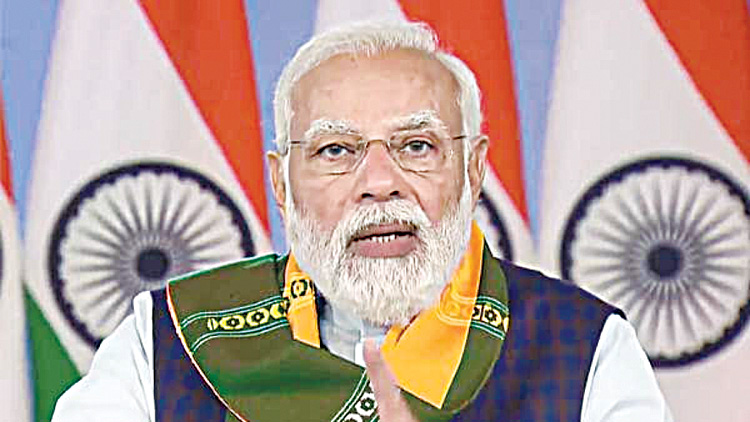Munich/New Delhi, June 28 (FN Agency) Prime Minister Narendra Modi on Monday suggested that to tackle the subject of global food security, the G7 could cooperate with India’s effort to increase fertiliser production, create a system for the widespread use of Indian agricultural talent in the member nations and also help run a campaign to promote millets as a nutritious alternative. In his remarks at the session on ‘Stronger Together: Addressing Food Security and Advancing Gender Equality’ at the G7 Summit in Germany, the PM said the members are meeting amidst an atmosphere of global tension, referring to the Ukraine conflict. “India has always been in favour of peace. Even in the present situation, we have constantly urged for the path of dialogue and diplomacy,” he said, adding that the impact of the “geopolitical tension” is not just limited to Europe.
“The rising prices of energy and food grains are affecting all the countries. The energy and security of developing countries is particularly at risk,” the PM said, adding that despite the challenging time India has supplied food grains to many countries in need. “We have dispatched about 35,000 tonnes of wheat as humanitarian aid to Afghanistan in the last few months. And even after the heavy earthquake there, India was the first country to deliver relief materials. We are also helping our neighbour Sri Lanka to ensure food security,” he added. Putting forward his suggestions on the subject of global food security, the PM said: ”First, we must focus on the availability of fertilizers, and keep the value chains of fertilizers smooth at a global scale. We are trying to increase the production of fertilizers in India and seek cooperation from G7-countries in this regard.
“Second, India has immense agricultural manpower compared to the countries of the G7. Indian agricultural skills have helped give new life to traditional agricultural products like cheese and olive in some of the countries of the G7. “Can the G7 create a structured system for the widespread use of Indian agricultural talent in its member countries? With the help of traditional talent of India’s farmers, food security will be ensured to G7 countries,” the PM said. On millets, he said that in 2023 the World is celebrating the International Year of Millets. He said the G7 should run a campaign to promote a nutritious alternative like millets. “Millets can make a valuable contribution to ensuring food security in the world.” He referred to the ‘natural farming’ revolution taking place in India, and said that G7 experts can study this experiment and added that India has shared a non-paper on this subject with the members.
On the subject of gender equality, the PM said that India’s approach is moving from ‘women’s development’ to ‘women-led development’. “More than six million Indian women frontline workers kept our citizens safe during the pandemic. Our women scientists made a big contribution in developing vaccines and test kits in India. More than one million female volunteers in India are active in providing rural health, whom we call ‘ASHA workers’. Just last month, the World Health Organization honoured these Indian ASHA workers with its ‘2022 Global Leaders Award’.” The PM said that if all the elected leaders in India from local government to national government are counted, “more than half of them are women, and the total number will be in millions”. “This shows that Indian women are fully involved in real decision-making today. Next year, India is going to chair the G20. We will maintain close dialogue with G7-countries on other issues, including post-COVID recovery, under the G20 platform,” he added.

